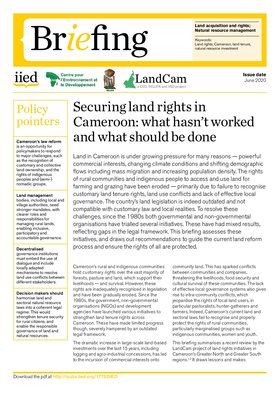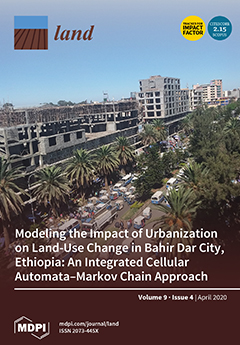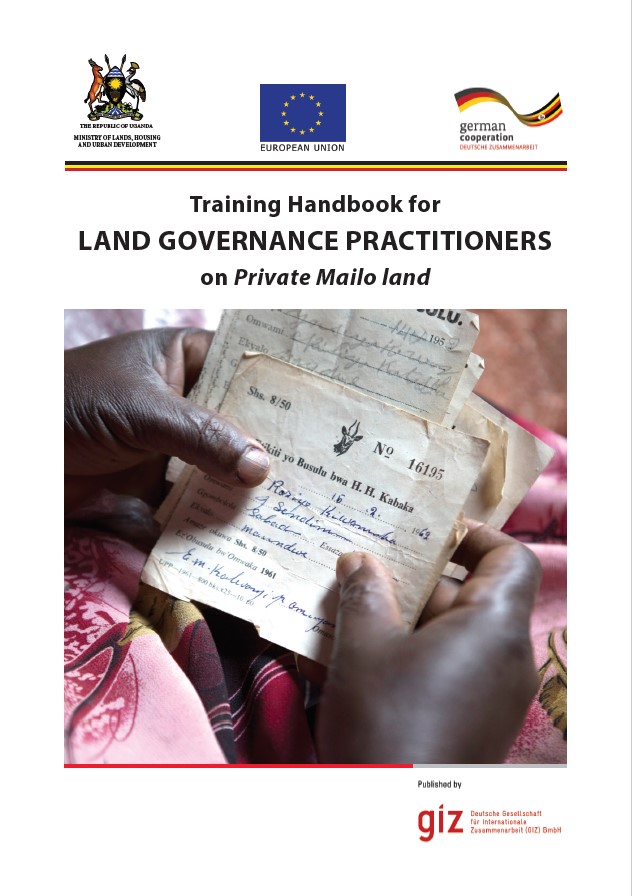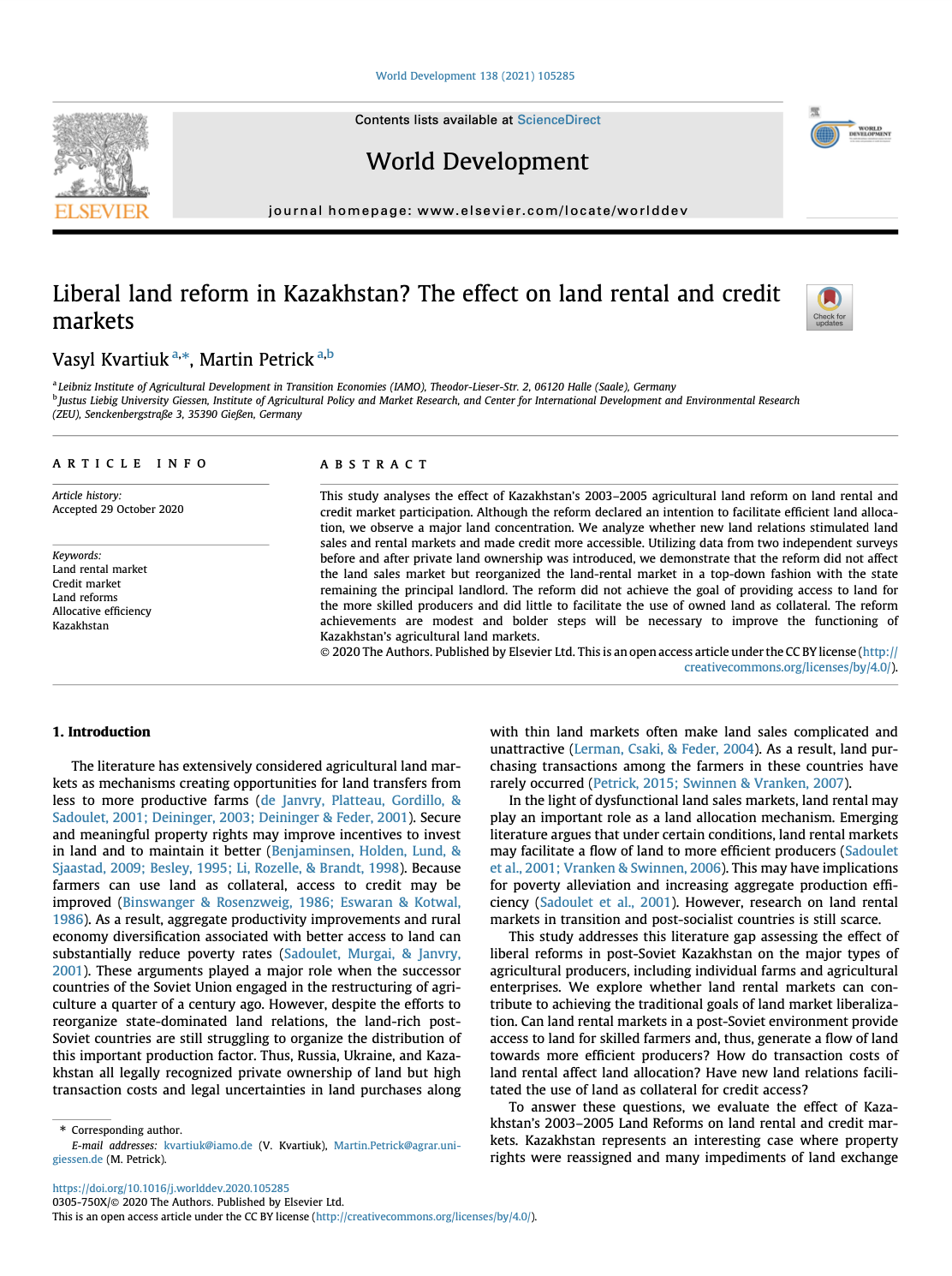Securing land rights in Cameroon: what hasn’t worked and what should be done
Land in Cameroon is under growing pressure for many reasons — powerful commercial interests, changing climate conditions and shifting demographic flows including mass migration and increasing population density. The rights of rural communities and indigenous people to access and use land for farming and grazing have been eroded — primarily due to failure to recognise customary land tenure rights, land use conflicts and lack of effective local governance. The country’s land legislation is indeed outdated and not compatible with customary law and local realities.










